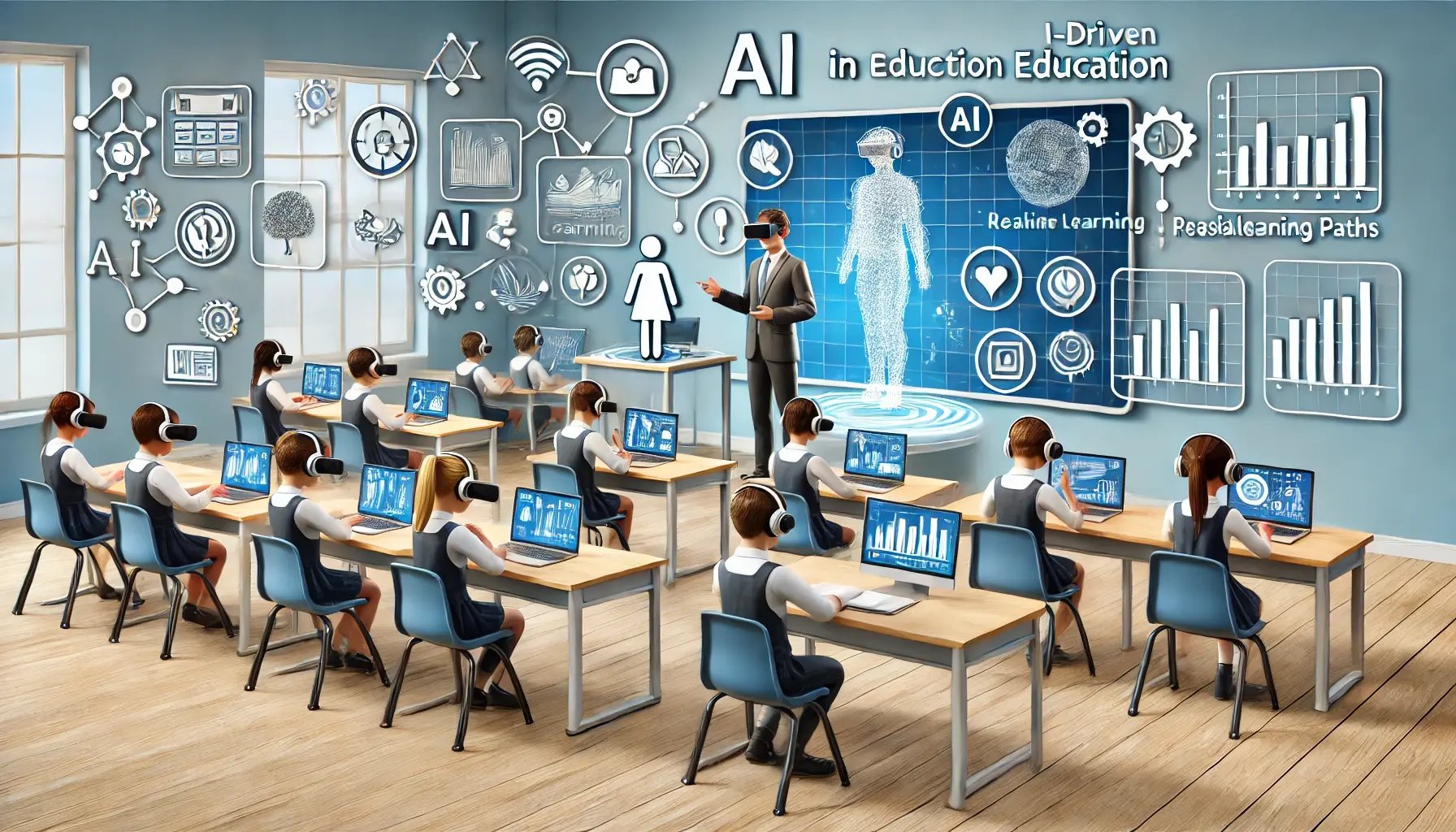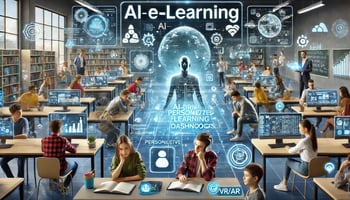How AI is Revolutionizing Student Engagement and Learning
 As we move deeper into the 21st century, the landscape of education is undergoing a profound transformation. One of the most significant drivers of this change is artificial intelligence (AI), which is reshaping how students learn, interact with content, and engage in the classroom. In this article, we'll explore the multifaceted impact of AI on education, focusing on how it enhances student engagement and personalized learning experiences.
As we move deeper into the 21st century, the landscape of education is undergoing a profound transformation. One of the most significant drivers of this change is artificial intelligence (AI), which is reshaping how students learn, interact with content, and engage in the classroom. In this article, we'll explore the multifaceted impact of AI on education, focusing on how it enhances student engagement and personalized learning experiences.
The Promise of Personalized Learning
AI's ability to personalize learning is one of its most compelling benefits. Traditional education models often adopt a one-size-fits-all approach, which can leave some students behind while others are not sufficiently challenged. AI changes this by creating adaptive learning environments that tailor educational content to individual needs.
Adaptive Learning Systems
AI-driven platforms analyze a student’s performance in real time and adjust the difficulty level, pacing, and type of content accordingly. This ensures that each student is engaged and learning at an optimal pace. For example, platforms like DreamBox and Knewton provide personalized math lessons, helping students stay engaged by presenting material that is neither too easy nor too difficult.
Intelligent Tutoring Systems
AI-powered virtual tutors, available 24/7, offer one-on-one assistance, answering questions and providing explanations just like a human tutor would. These systems ensure that help is always available, preventing frustration and disengagement.
Interactive and Immersive Learning Experiences
AI enhances engagement by making learning more interactive and immersive. Technologies such as virtual reality (VR) and augmented reality (AR) offer hands-on learning experiences that traditional methods cannot match.
Gamification
Integrating game elements into learning turns education into an engaging activity. AI-powered gamified learning platforms create interactive environments where students can earn rewards, achieve levels, and track progress, all of which boost motivation and engagement.
Virtual and Augmented Reality
AI enhances VR and AR experiences, providing immersive environments for exploring complex subjects. Imagine students conducting virtual science experiments or exploring historical sites in a 3D space—these experiences make learning vivid and memorable.
Data-Driven Insights and Real-Time Feedback
AI’s capacity to analyze vast amounts of data provides valuable insights into student performance and engagement. This data-driven approach allows for timely interventions and personalized support.
Real-Time Feedback
AI systems can provide immediate, personalized feedback on assignments and quizzes, helping students understand their mistakes and learn from them promptly. This instant feedback loop keeps students engaged by addressing their needs as they arise.
Predictive Analytics
By analyzing patterns in student data, AI can predict which students are at risk of falling behind and suggest proactive measures to keep them on track. This ensures that students receive the support they need before disengagement becomes an issue.
Enhancing Classroom Interactivity
AI transforms traditional classrooms into dynamic, interactive learning environments. Smart classrooms equipped with AI tools can enhance the learning experience through various means.
Smart Classrooms
AI can manage classroom activities, from automated attendance to interactive displays that respond to student inputs. These technologies make the classroom more engaging and efficient.
Behavioral Insights
AI can monitor student interactions and engagement levels, providing teachers with insights into classroom dynamics. This information helps educators adjust their teaching strategies to maintain high levels of engagement.
Supporting Social and Collaborative Learning
Collaboration is a critical component of modern education, and AI facilitates this through various tools and platforms.
Peer Learning Platforms
AI can pair students with complementary skills for peer tutoring and group projects, fostering a collaborative learning environment. This not only enhances learning but also builds social and teamwork skills.
Discussion Forums and Communities
AI can moderate and enhance online discussion forums, ensuring active participation and meaningful interactions among students. This supports a sense of community and collaborative learning, even in virtual settings.
Ensuring Accessibility and Inclusion
AI’s potential to make education more inclusive and accessible cannot be overstated. Technologies that support diverse learners are essential for creating an equitable learning environment.
Assistive Technologies
AI-powered tools support students with disabilities by providing customized learning aids, such as text-to-speech and speech-to-text functionalities. These tools ensure that all students have the opportunity to engage fully in their education.
Language Support
Real-time translation and language support powered by AI make learning materials accessible to non-native speakers, breaking down language barriers and enhancing engagement.
The Road Ahead
The future of education technology is bright, with AI leading the way toward more personalized, interactive, and accessible learning experiences. As these technologies continue to evolve, they will play a critical role in shaping the educational landscape, preparing students for the challenges of the 21st century and beyond.
Incorporating AI into education is not just about keeping up with technological advancements; it's about leveraging these tools to create a more engaging, effective, and inclusive learning environment. As educators, students, and policymakers embrace these changes, we can look forward to an era where education is truly personalized and engaging for every learner.
By embracing the power of AI, we can transform education from a standardized system into a dynamic, responsive, and personalized experience. The impact of AI on student engagement and learning is profound, and as these technologies continue to develop, the possibilities for enhancing education are limitless.


